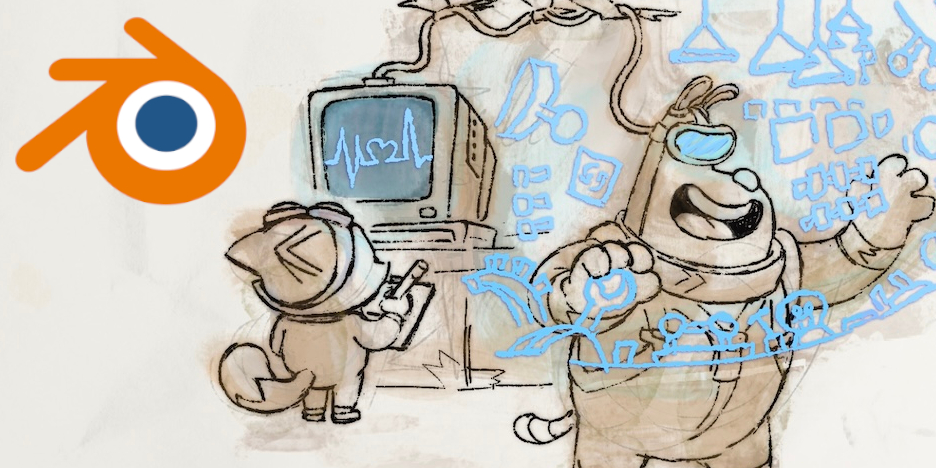Blender Foundation launches the Blender Lab

The Blender Foundation has launched the Blender Lab, a new program through which to develop more ambitious, experimental features for the open-source 3D software.
Blender Lab projects will be run in parallel with standard Blender development, and will not have fixed timelines or target release dates.
Current Lab projects include previously announced work on the new tablet editions of Blender, plus new virtual reality workflows and advances in volume rendering and light transport.
Future projects could include new USD authoring capabilities and new AI technologies, like enabling LLMs to interact with Blender through natural-language commands.
A safe space in which Blender developers can break things
The Blender Lab is intended to address one of the challenges of software development: how to add new features to a product without affecting its stability or reliability.
This is particularly significant with Blender, which now has one of the most ambitious release schedules of any major DCC app, but also by far the largest and most diverse user base.
Over time, the Blender Foundation has increasingly catered to the needs of larger studios, adopting a conventional two-year development cycle with regular Long-Term Support releases.
By making it possible to work on more ambitious new features without affecting the public release, the Blender Lab looks to be a way to balance the needs of those studios – which want Blender to remain reliable throughout production on multi-year game or VFX projects – with those of individual artists, who often want to see new tech adopted as quickly as possible.
The Blender Foundation pitches the Lab as a way to address the need to “think outside the box, experiment, and break things”, describing it as an “innovation space … where designers and developers can work together on challenging or future-facing projects”.
Initial projects include the new tablet editions, plus work on new rendering algorithms
The initial Blender Lab projects include one that had already been announced: improvements to user experience on tablet devices, including the new tablet editions of the software.
It will be joined by work on location scouting in VR for virtual production pipelines, plus more general work on making new algorithms for volume rendering and light transport “practical for GPUs and production rendering”.
Proposed future projects include an expansion of Blender’s USD authoring capabilities, and enabling LLMs like ChatGPT to interact with the software via Model Context Protocol.
The Blender Foundation is currently looking for partners for both projects: both commercial sponsors to fund the work and academic researchers. You can find details via the links below.
Read Blender CEO Francesco Siddi’s blog post announcing the aims of Blender Lab
Have your say on this story by following CG Channel on Facebook, Instagram and X (formerly Twitter). As well as being able to comment on stories, followers of our social media accounts can see videos we don’t post on the site itself, including making-ofs for the latest VFX movies, animations, games cinematics and motion graphics projects.
